Four years after the nuclear disaster at the Fukushima Daiichi NPP, which led to 160,000 people being evacuated from their homes, 120,000 have still not been able to return and some areas are still too dangerous to enter.
Polish photographer and filmmaker Arkadiusz Podniesinski visited the exclusion zone around the Fukushima power plant to see the aftermath of the disaster with his own eyes.
Unique tour of the Fukushima exclusion zone – in our photo gallery.
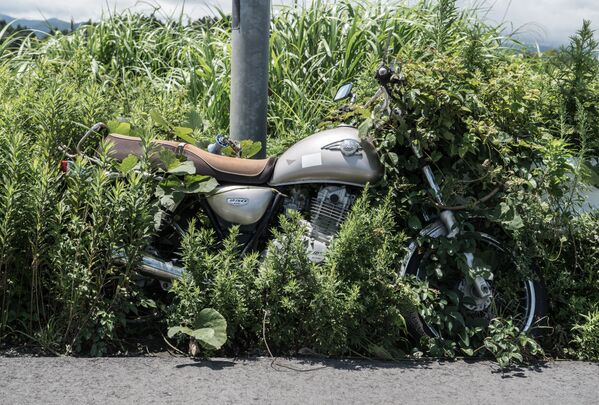
1/10
© Photo : Arkadiusz Podniesinski/REX
"My goal was to present the actual state of the exclusion zone. Futaba, Namie and Tomioka are ghost towns whose emptiness is terrifying and show a tragedy that affected hundreds of thousands of people," Podniesinski was quoted as saying by Daily Mail.
Above: A bike swallowed by the overgrown wilderness.
Above: A bike swallowed by the overgrown wilderness.
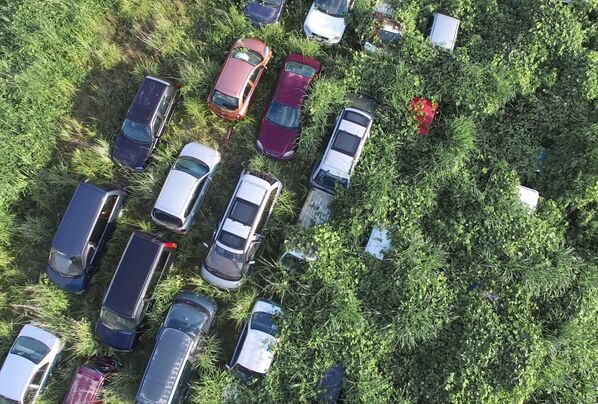
2/10
© Photo : Arkadiusz Podniesinski/REX
The Fukushima nuclear disaster was caused by a powerful tsunami after a major earthquake on March 11, 2011.
Above: Cars left during evacuation.
Above: Cars left during evacuation.
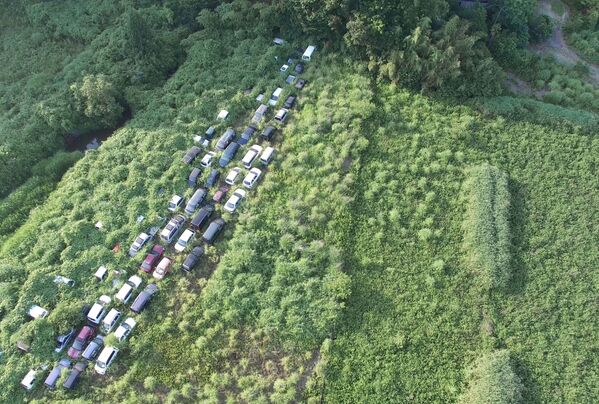
3/10
© Photo : Arkadiusz Podniesinski/REX
It is the largest nuclear disaster since the Chernobyl disaster in 1986 and the second disaster (after Chernobyl) to be given the Level 7 event classification of the International Nuclear Event Scale.
Above: Cars left by local residents are seen engulfed in the wilderness.
Above: Cars left by local residents are seen engulfed in the wilderness.
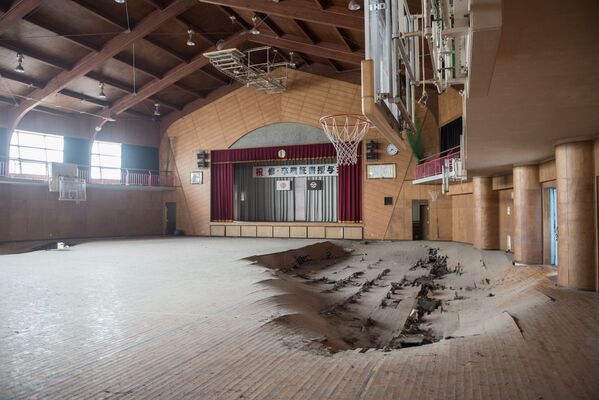
4/10
© Photo : Arkadiusz Podniesinski/REX
After the tsunami, three of Fukushima’s reactors were disabled. In the subsequent days, all the three cores melted. A total of four reactors were written off.
Above: The gym in a local school.
Above: The gym in a local school.
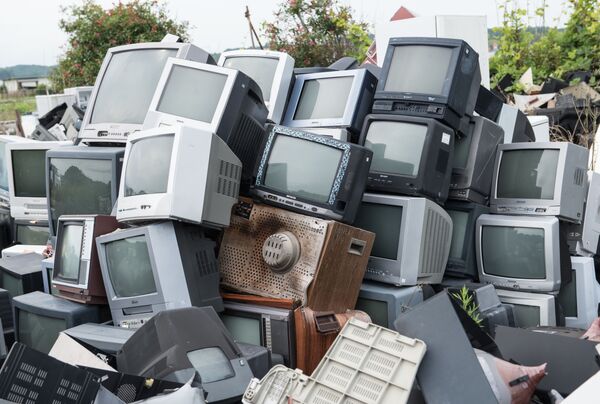
5/10
© Photo : Arkadiusz Podniesinski/REX
The 12.5-mile exclusion zone around the NPP resembles the set of a zombie apocalypse movie after it was abandoned following the disaster.
Above: A graveyard for TV sets.
Above: A graveyard for TV sets.
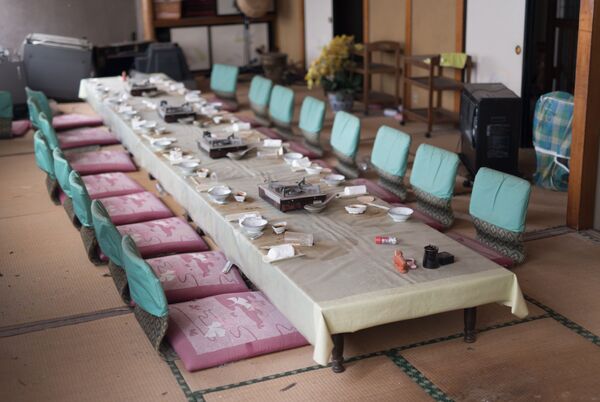
6/10
© Photo : Arkadiusz Podniesinski/REX
As people fled the area after warnings of dangerous levels of radiation, everything was left behind. People abandoned their houses and cars, supermarkets still have products on shelves.
Above: An abandoned restaurant in the Fukushima exclusion zone.
Above: An abandoned restaurant in the Fukushima exclusion zone.
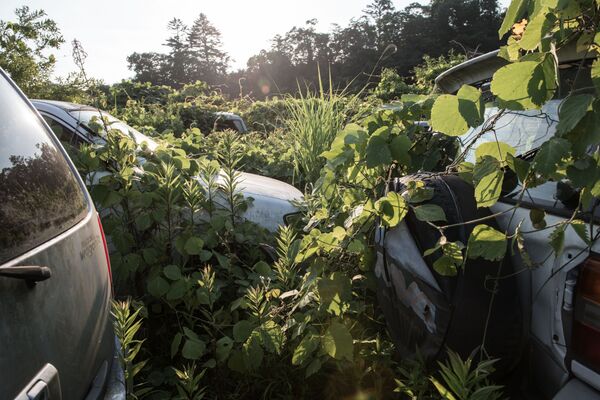
7/10
© Photo : Arkadiusz Podniesinski/REX
Now cars and houses left after the evacuation are engulfed by the overgrown wilderness.
Above: Overgrown wilderness in the Fukushima exclusion zone.
Above: Overgrown wilderness in the Fukushima exclusion zone.
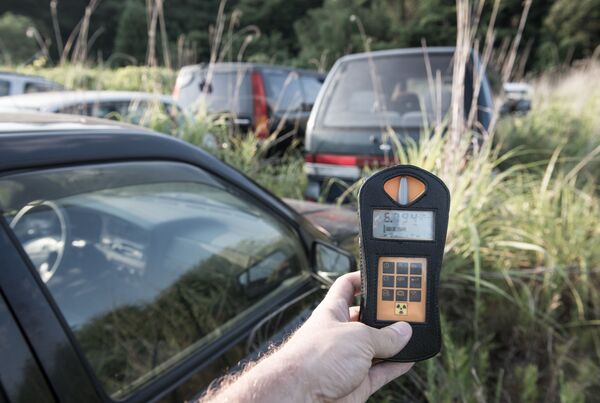
8/10
© Photo : Arkadiusz Podniesinski/REX
Now, 20,000 workers clean towns and villages house by house, in an effort to allow residents to return home.
Above: Dosimeter shows a high level of radiation.
Above: Dosimeter shows a high level of radiation.
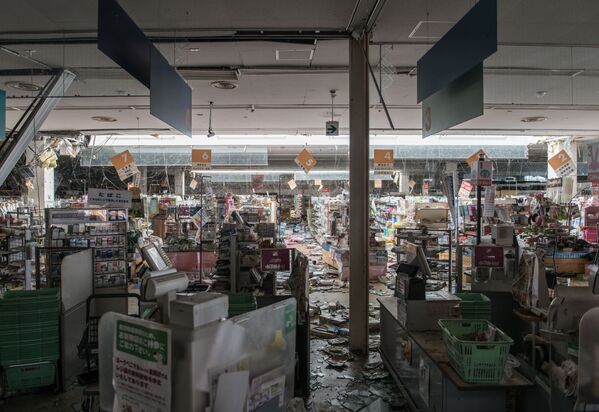
9/10
© Photo : Arkadiusz Podniesinski/REX
Many towns of the exclusion zone are closed to visitors. As the level of radioactivity is high in many towns, protective clothing and appropriate equipment is necessary.
Above: An abandoned supermarket in the Fukushima exclusion zone.
Above: An abandoned supermarket in the Fukushima exclusion zone.
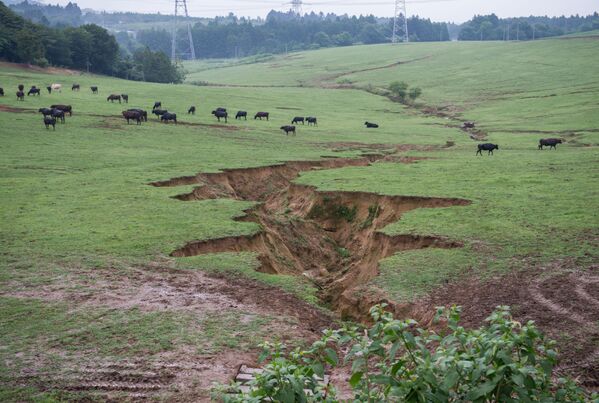
10/10
© Photo : Arkadiusz Podniesinski/REX
Farmer Masami Yoshizawa returned to his farm after the disaster and breeds cattle. The cracks in the ground were caused by the earthquake in 2011.

